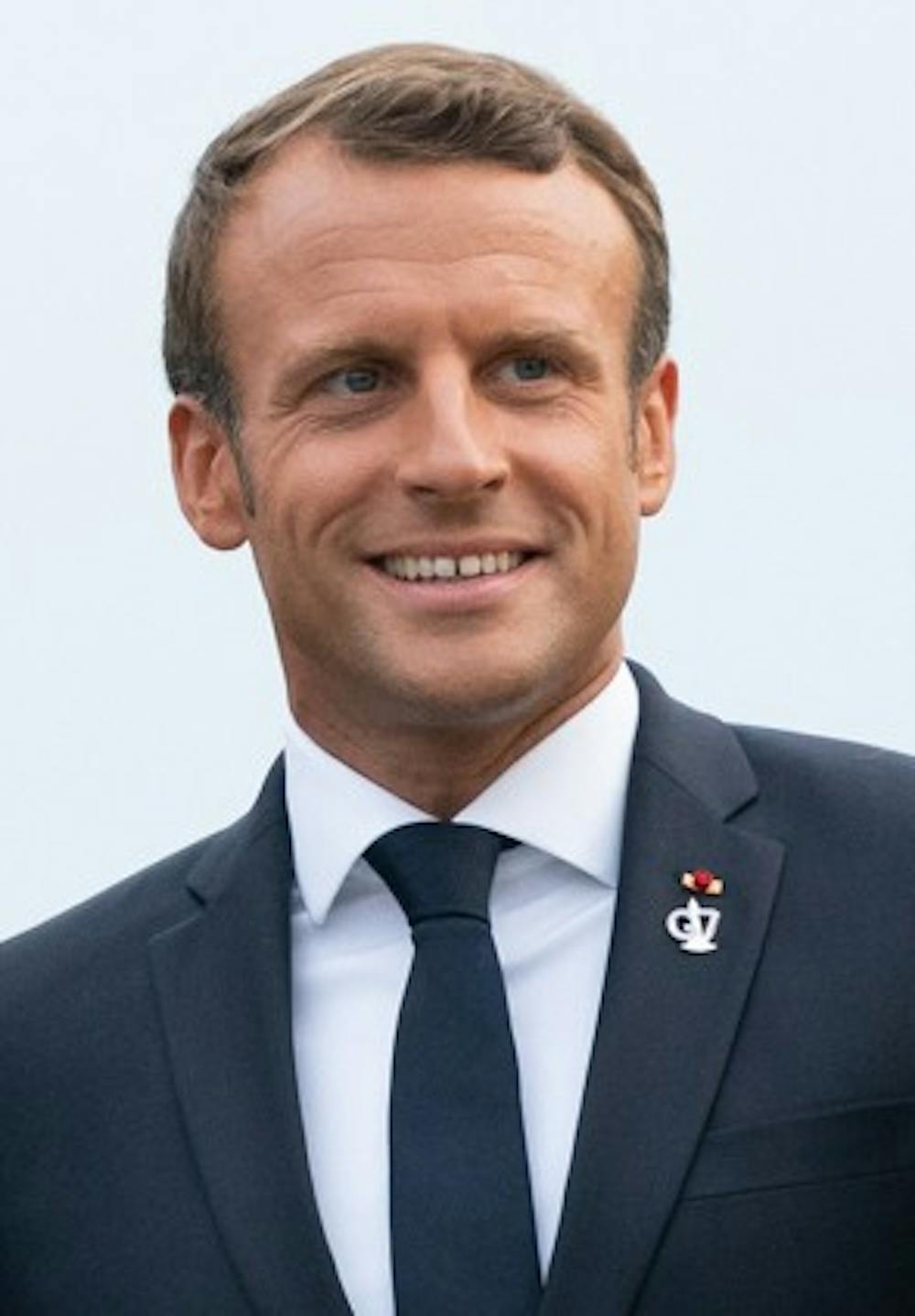On Nov. 19, French president Emmanuel Macron asked the French Council of the Muslim Faith to sign a charter prohibiting Islam from being politicized and restricting “foreign interference” among Muslim groups. This charter intends to prevent radical Islamists from gaining traction; Macron’s request that French Muslims accept this contract of “republican values” follows a series of terror attacks committed by French Islamists.
Yet Macron’s response to these attacks, ostensibly made in the name of secularism, suppresses Islam itself, further marginalizing French Muslims and fostering resentment. Muslim history in France is a story filled with neglect; French Muslims face 25 percent unemployment rates and many reside in underfunded Parisian housing projects. The inadequacy of Macron’s response overlooks, and in fact obscures, the larger structural forces that must be addressed to resolve recent Islamist terrorism.
Macron does not confuse Islamism and Islam when he speaks of the turmoil in France — Islamism is the militant fundamentalism carried out in the name of Islam, the religion — but his verbal precision does not compensate for his indiscriminate treatment of Muslims who are proudly pious and those who are violently so.
The most notable of the recent terror attacks was the murder of teacher Samuel Paty. Paty had shown his students a controversial caricature of the prophet Muhammad — one that had received major backlash among the Muslim community, to whom idolatry is blasphemous. The satirical magazine Charlie Hebdo published the cartoon; this publication is no stranger to Islamic caricatures, one that I, although not Muslim, find borderline insensitive.
I possess no religious affiliation or affinity, but I do stand by the notion that satire is no longer funny if it is disrespectful. There is a difference between being critical and undermining culture and tradition, not to mention a culture historically marginalized in France.
Flaws of Charlie Hebdo aside, a conversation surrounding the complexity of both the cartoon and its reception were absolutely warranted. The murder of Paty was not only objectively barbaric, but, as Macron has repeatedly reminded France, a suppression of free speech and discourse. Macron has upheld his commitment to the continued production of satirical cartoons.
Despite Macron’s commitment to preserving free speech, he holds little conviction for the maintenance of religious freedom. Macron has deemed the recent terror attacks a reflection of the “crisis” facing Islam all over the world today. His policies to combat “Islamist separatism” include granting local authorities additional legal powers to fight extremism and severely limit homeschooling of young children.
Although Macron’s commitment to secularism is admirable, I find his attempts to eliminate Islamism ineffective for two reasons. First, Macron’s decision to take these measures, rather than responding to the Muslim protesters throughout the Islamic world who have condemned his refusal to cease satirical Muhammad publications, has allowed French Muslims to be further excluded from their own country. The violent sentiments of extremism will only continue to fester.
Over the past three months, three of the four terror attacks that have rocked France were confirmed acts of Islamism. Hate is not, however, inherent to French Muslims or anyone else. Instead, the ghettoization of the five million Muslims in France largely accounts for the pattern of frustration and impaired national identity that gives violent Islamists their appeal.
The apparent lack of social mobility for many French Muslims is perceived as emblematic of a lack of care for the Muslim community, and a lack of effort for their inclusion. Rather than allocating more power to local authorities, Macron should be funneling more money into these Muslim housing projects.
Instead of decreasing homeschooling, Macron should be bolstering the school system in the Muslim projects, creating a more accessible source of patriotism for French Muslims who do not possess the resources of white French citizens. Furthermore, homeschooling is not inextricably linked to religion, but to an opposition to state regulation. Research has shown no evidence pointing to homeschooling as a cause of radicalization, yet in restricting homeschooling to reign in Islamist extremism, Macron insinuates that Muslims are generally imbued with anti-government inclinations.
The second exemplification of Macron’s ineffective leadership is his blatant hypocrisy. Macron claims that secularism promotes freedom of speech — which includes the freedom of Charlie Hebdo’s weekly content — but by definition, secularism also promotes freedom of religion. The absence of a centralized religion makes possible the coexistence of many religions, and consequently diversifies the faces of piety and devotion in a secular state.

Included in Macron’s separatist plan is the decision to increase requirements that imams coming from outside of France must meet. His attempted restructuring of French mosques is an infringement on religious freedom. It is not the mosques that are breeding grounds for terrorism — instead, it is the aforementioned lack of country affinity among Muslims, perpetuated by their exclusion from white French society. In emphasizing the principle of laïcité (French secularism), Macron assumes a hands-off approach to his treatment of all religions — except for Islam. This is exactly the discrimination that a secular state was created to avoid.
As Princetonians, we are lucky enough to experience classrooms in which diversity of thought and expression is rarely, if ever, suppressed; this is a result of a secular campus. Part of what breeds such an intellectual and inclusive body of students is our adoption of tolerance — this includes tolerance of speech, dress, and, of course, religion.
As educated individuals who have benefited from these principles of tolerance, we should take note and be alarmed when such principles are threatened, as is occurring in France. In handpicking which religions are suitable to take pride in and which aren’t, Macron diminishes the French commitment to decentralized religion. Macron must recognize that in his crack-down on Islamism, he decreases the space for religious freedom and loses sight of what “laïcité” really means.
Andi Grene is a first-year from Manhattan. She can be reached at agrene@princeton.edu.








